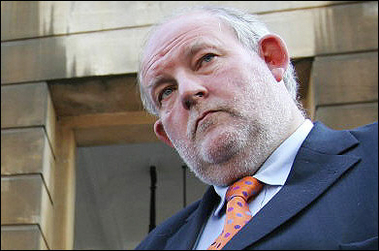|
British lawmakers back anti-terror measures
(AFP)
Updated: 2005-10-27 09:15
British parliamentarians voted in favour of a new anti-terrorism bill despite
strong opposition to plans to hold security suspects for up to 90 days without
charge.
Home Secretary Charles Clarke, in charge of the legislation, said he was
prepared to be "flexible," meaning concessions could be introduced, after the
measures were attacked by members of his governing Labour Party and opposition
member of parliament (MPs) alike.
The bill passed its second reading in the elected lower House of Commons by
472 votes to 94 thanks to majority support among the main opposition
Conservatives -- who warned they would dig their heels in over certain sections
in future.
The extension of a 14-day limit for police to hold terrorist suspects without
charge is one of the central planks of the government's Terrorism Bill.
It was recommended by police in the wake of the July 7 bombings in London
that killed 56 people, including four supposed suicide bombers.
The bill will now undergo a more detailed discussion before returning to the
Commons for another vote.

Home Secretary Charles Clarke asked lawmakers
returning to parliament from their 80-day summer recess to 'proscribe' 15
Islamist groups under existing laws, ahead of publishing the government's
new anti-terrorism bill on Wednesday.
[AFP] | Clarke stood firm, insisting that the new power was required because of the
serious threat Britain faced from terrorism.
"We cannot properly fight terrorism with one legal hand tied behind our back,
or give terrorists the unfettered right to defend themselves as they promote and
prepare violent attacks on our society," Clarke said.
Other contentious areas in the bill include a proposal to make glorifying or
indirectly encouraging terrorism an offence punishable by up to seven years in
prison.
The smaller opposition Liberal Democrats voted against the measures to
prolong detention without charge.
"We feel so strongly on this issue," home affairs spokesman Mark Oaten said.
However, he added: "it is still our long-term aim to achieve consensus on
this".
Even the government's independent terrorism watchdog, Alexander Carlile,
warned the extended detention period could be challenged in the courts under the
Human Rights Act.
|